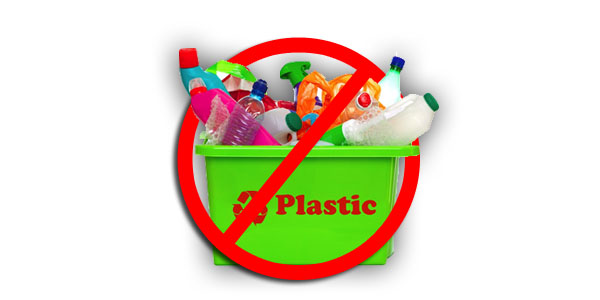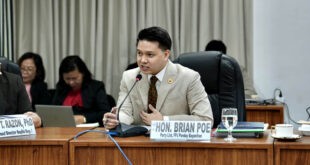NAPAPANAHON nang ipagbawal ang paggamit ng plastic, ayon kay House Speaker Pantaleon Alvarez sa Kapihan sa Manila Bay sa Café Adriatico sa Malate, Maynila.
Ayon sa Association of Southeast Asian Nation (ASEAN) Inter-Parliamentary Assembly (IPA) kamakailan, sang-ayon ang lahat ng mga member state ng asosasyon ukol sa problemang kinakaharap dulot ng masamang epekto ng plastic pollution sa ating kapaligiran at kalikasan.
Ayon kay Alvarez, seryosong ibabalangkas ng pamahalaan ang mga alituntunin sa pagbabawal ng paggamit ng plastic at malaki ang posibilidad na maisabatas ito sa susunod na taon upang maipakita sa ASEAN ang aktibong paglahok ng Filipinas sa layuning linisin ang ating kapaligiran sa polusyon.
Una rito, umapela ang Greenpeace Southeast Asia sa ASEAN community ukol sa problema ng plastic pollution sa rehiyon. Ang mensaheng ito ay inihatid sa pamamagitan ng higanteng animated ‘Plastic Bag Man and Woman’ video na ipinadala ng organisasyon sa mga embahada ng Indonesia, Malaysia, Thailand at Vietnam at gayun din sa tanggapan ng Department of Foreign Affairs ng Filipinas.
“ASEAN member states are being asked to ban single-use plastics, and to unite and act to address plastics and marine debris pollution. Greenpeace is asking ASEAN governments to stiffen policies on waste management to arrest the rising rate of waste being dumped into the ocean and finding their way to the open seas,” punto ng kinatawan ng unang distrito ng Davao del Norte.
Kabilang sa single-use plastic ang mga bag, botelya, straw at iba pang katulad nito na kadalasan ay itinatapon matapos gamitin nang minsan.
Lumitaw sa pag-aaral noong 2015 na lima sa miyembro ng ASEAN ang itinuturing na biggest source ng plastics pollution sa karagatan. Ang sinasabing mga bansa ay ang Indonesia, Vietnam, Thailand, Malaysia at Filipinas “The ASEAN region’s contribution to plastic pollution in the oceans cannot be ignored and is already way beyond alarming. We are asking the ASEAN membership to take this issue with a sense of urgency and demand that our leaders initiate bold steps to address plastics pollution through regional cooperation, exacting corporate responsibility and massive public education,” punto ni detox campaigner Abigail Aguilar ng Greenpeace Philippines.
“The failure of these waste management systems is one of the primary causes of plastic waste entering the oceans. This is compounded by additional factors, including lack of infrastructure, harmful human activities, an inadequate public understanding of the potential consequences of their actions, the lack of adequate legal and enforcement systems nationally and internationally, and a lack of financial resources,” dagdag ni Aguilar.
ni Tracy Cabrera
 HATAW! D'yaryo ng Bayan hatawtabloid.com
HATAW! D'yaryo ng Bayan hatawtabloid.com






















